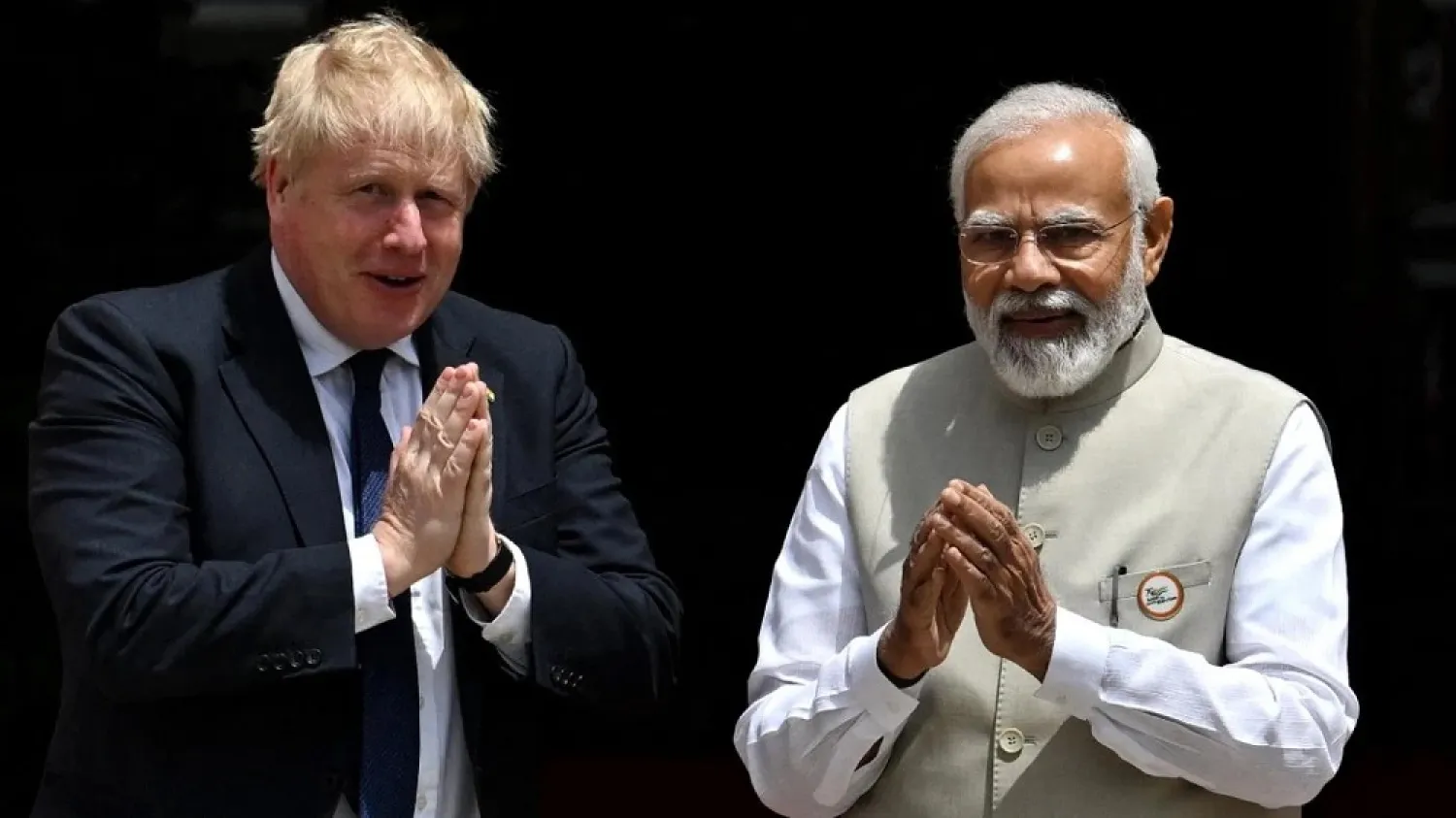India and Britain on Friday called on Russia for an immediate ceasefire in Ukraine as British Prime Minister Boris Johnson announced steps to help move New Delhi away from its dependence on Russia by expanding economic and defense ties.
Indian Prime Minister Narendra Modi told reporters that both sides discussed the situation in Ukraine, underscoring the importance of diplomacy and dialogue to settle issues.
"Both sides also called for a free, open, inclusive and rule-based order in the Indo-Pacific,'' Modi said an apparent reference to China's aggressiveness in the region.
Johnson switched over to Hindi language to describe Modi as a "Khaas Dost," or special friend, and said, "Our relations have never been as strong or as good between us as they are now,´´
Johnson said Britain will issue an Open General Export License to India, reducing bureaucracy and shortening delivery times for defense procurement.
"This is our first OGEL in the Indo-Pacific region," he said.
Johnson also announced $1.29 billion in new investments and export deals in areas from software engineering and artificial intelligence to health, creating almost 11,000 jobs across the United Kingdom.
The two countries are committing up to $96.80 million to roll out adaptable clean tech innovations from India to the wider Indo-Pacific and Africa, and working together on international development and girls´ education, a British High Commission statement said.
Soon after his arrival in India on Thursday, Johnson said he was aware of the close ties that India and Russia have shared.
"We have to reflect that reality. But clearly, I'll be talking about it to Narendra Modi," he told reporters in Ahmedabad, the capital of western Gujarat state, where he landed.
Modi recently called the situation in Ukraine "very worrying" and has appealed to both sides for peace. While India has condemned the killings of civilians in Ukraine, it has so far not criticized Russian President Vladimir Putin, and abstained when the UN General Assembly voted this month to suspend Russia from the Human Rights Council.
Modi has also responded coolly to pressure from US President Joe Biden and others to curb imports of Russian oil in response to the invasion.
Johnson said Friday that "the world faces growing threats from autocratic states which seek to undermine democracy, choke off free and fair trade and trample on sovereignty."
"Our collaboration on the issues that matter to both our countries, from climate change to energy security and defense, is of vital importance as we look to the future,'' he said.
The British High Commission statement said Britain is offering next-generation defense and security collaboration across five domains - land, sea, air, space and cyber - to face complex new threats.
This includes support for new Indian-designed and -built fighter jets, offering the best of British know-how on building aircraft. Britain will also seek to support India's requirements for new technology to identify and respond to threats in the Indian Ocean, the statement said.
Johnson said he and Modi also discussed new cooperation on clean and renewable energy, aimed at supporting India's energy transition away from imported oil and increasing its resilience through secure and sustainable energy.
India receives relatively little of its oil from Russia, but ramped up purchases recently because of discounted prices. India is a major buyer of Russian weapons, and recently purchased advanced Russian air defense systems.









